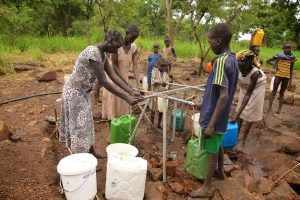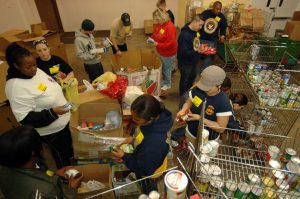What initially drew our group together was our shared passion for ending local food insecurity and world hunger. World hunger is often an issue that is made to feel distant from our reality as university students, but as a group we realize that food insecurity is an acute and visible issue in the Seattle area, influenced by increasing wealth and racial disparities in an increasingly gentrified city. In order to address the issue of world hunger we decided to partner with a local and a global organization, both already making strides against hunger.
In deciding who to partner with, our group did extensive research to ensure that the organizations that we chose are sustainable and not disruptive to communities. We worked through systems theory to ensure that the organizations we partnered with were socially, environmentally, and economically aware of their contributions and the systemic effects they yield. The first organization that we chose to support is Oxfam, an international non-profit organization that works with local communities to fight world hunger. Oxfam supports community driven projects and works to mobilize people in collective action against unjust policies and institutions.

The local organization that we found was the University District Food Bank, a food bank designed to meet immediate community needs, but that also works to empower customers to achieve self-sufficiency. The University District Food Bank reports that two-thirds of the households that utilize their food bank have at least one person working a full-time job, thus indicating that the food bank is an important way for families to save a few dollars on monthly expenses while still working towards self-sufficiency. We believe that these two organizations have taken concrete actions towards achieving local and global food security, and both have sustainable models for development and empowerment of local communities.

In partnering with these organizations we came up with the idea of putting on a benefit concert to support their already existing efforts through monetary and food donations. Unfortunately, due to issues with the venue, the benefit concert had to be cancelled last minute. As frustrating as this devastating setback was, we learned an immense amount about what makes an aid organization sustainable, how to plan an event, and just how important it is to have multiple backup plans when looking to put on a project of this caliber.
Images from: Wikimedia Commons
